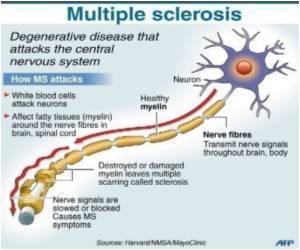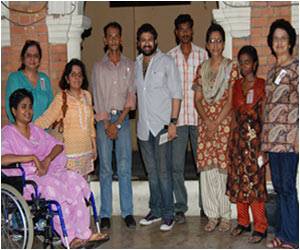
However, early in the disease, a regenerative process, or remyelination, occurs and the myelin sheaths are restored. Unfortunately, as people with MS age, remyelination decreases significantly, resulting in more nerve fibers being permanently lost.
However, the latest study in mice shows that the age-associated decline in the regeneration of the nerve's myelin sheath, or remyelination, is reversible.
The proof of principle study demonstrates that when old mice are exposed to the inflammatory cells (called monocytes) from young mice, the ageing remyelination process can be reversed.
"What we have shown in our study, carried out in collaboration with Dr Amy Wagers and colleagues at Harvard University, is that the age-associated decline in remyelination is reversible," said Professor Robin Franklin, Director of the MS Society's Cambridge Center for Myelin Repair at the University of Cambridge.
"We found that remyelination in old adult mice can be made to work as efficiently as it does in young adult mice.
Advertisement
The study has just published in the journal Cell Stem Cell.
Advertisement











